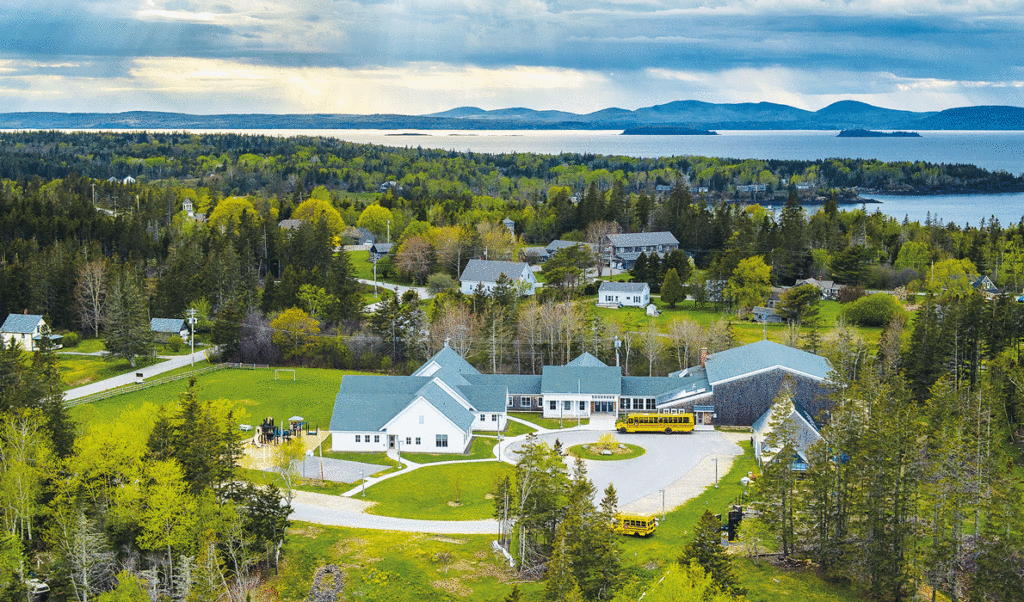Reflections is written by Island Fellows, recent college grads who do community service work on Maine islands and in remote coastal communities through the Island Institute, publisher of The Working Waterfront.
By Maria Keeler
It is an inherently slow process to incorporate yourself into a community, to listen to what others notice about the world and allow yourself to be vulnerable and share your own observations. Reflecting upon this first year of my fellowship on North Haven, most of the moments I found connection to the island community were intangible, often when I found myself internally whispering “what am I doing?”
This whisper came while sitting in a living room with high school students, watching the TV show High School Musicalat 9:15 p.m. on a Wednesday. And while trying to cut a scalding pizza with a scissors during middle school night out. And promoting outdoor navigation skills with students and ending up lost (and found, not to worry). And emerging from a shed in a massive Easter bunny costume, high-fiving children and sweating profusely.
These moments are ones that stick out in my mind, representing various forms of personal growth, times I was impacted by others, whether they were aware or not. This year has been enriched by invisible, intangible impacts curated primarily by students in grades K-12.
One instance that keeps popping up in my memories occurred late in the spring.
My internal clock is not on good terms with timeliness. One morning in May, after an intense morning rain, I zoomed to school on my bike. Zoomed is an exaggeration. Uncertain of the time, worrying I was late and perspiring in my humid raincoat, I rounded the driveway to school. Morning recess was in full swing, so I must have been slightly after “on time.”
As I quickly strode up the sidewalk leading to a door 15-inches from my shared office, my peripheral vision outlined several students beelining for me. Upon closer inspection, those students were holding a mysterious, lidless gray storage bin.
With proud smiles on their faces, the students thrust the storage bin lid containing 37 or so wriggling worms into my arms. These worms had been salvaged from the basketball court, drawn from the earth by the saturating rain earlier. The students knew of my strong affinity for Lumbricus rubellus, common composting worms, and wanted to ensure a safe home for these worms in the garden.
Earlier in the year I ended up caretaking for several vermicomposting bins, all four of which live in my office with me. The elementary students assisted in the first harvest from the bin, necessary to keep the population more manageable. These bins had not been mentioned very often, so it was surprising that students thought of me, took the effort to save the Lumbricidlives and were enthralled with selecting a raised bed home for them.
The observation and empathy students displayed for the world around them struck me, demonstrating so much growth since I’d met them, as they took time to pay attention to the well being of the environment around them. Such a small moment, they probably didn’t think twice about it.
I had learned so much about their interests over the year and it was powerful to see their growing compassion in the way you would hope community members think and give to one another.
All year, working with students, I’ve watched them become increasingly attentive to the world around them and expand their curiosity. I am already wondering what this year will bring, and thinking of who they will be next spring.
I’m grateful to live on North Haven and look forward to the future these students will create in this world.
Maria Keeler works with teachers at the North Haven Community School to create standards-based agricultural curriculum. She also is supporting community health and wellness initiatives. She is a graduate of the University of Minnesota Morris with degrees in biology and psychology.





